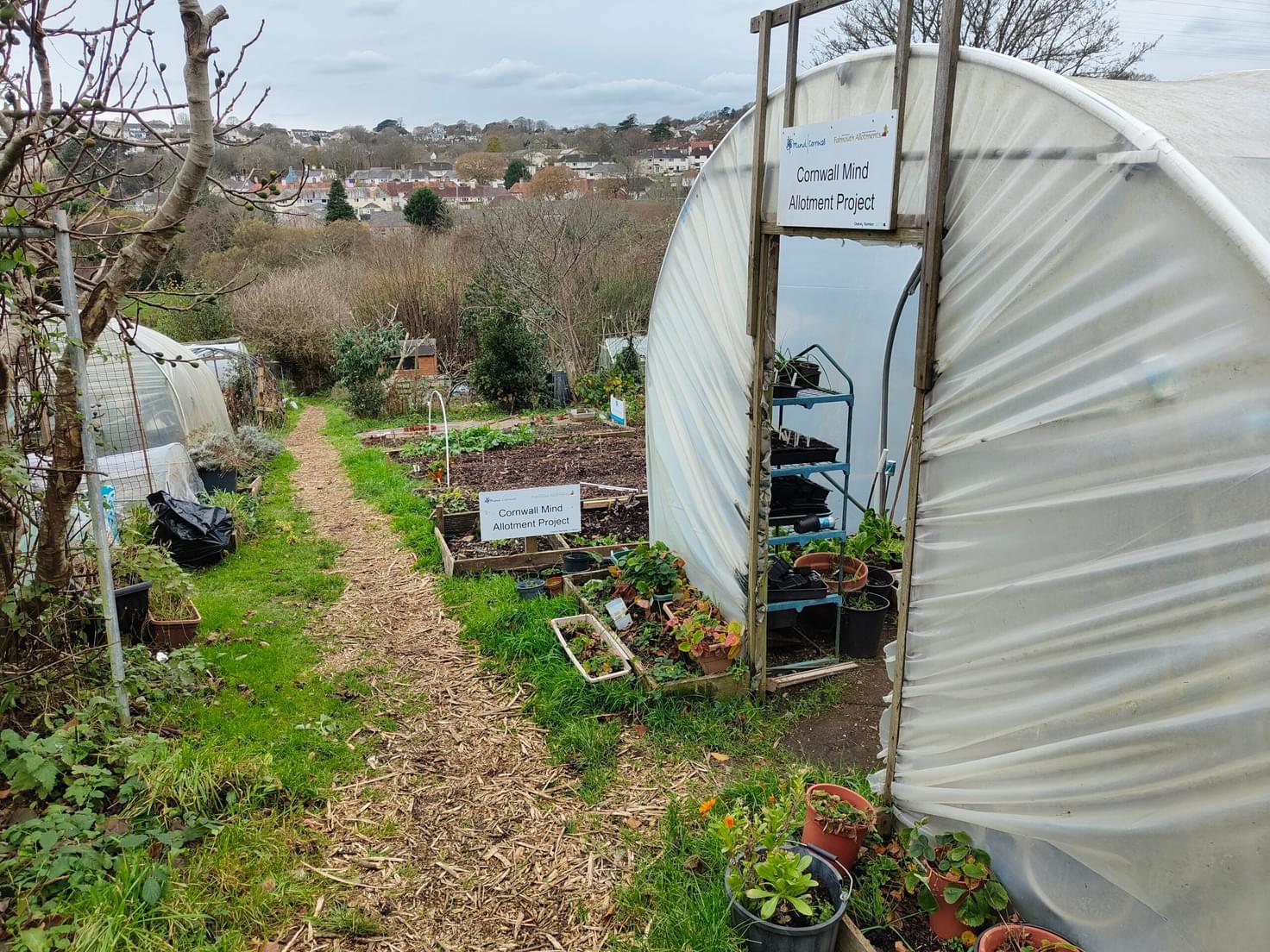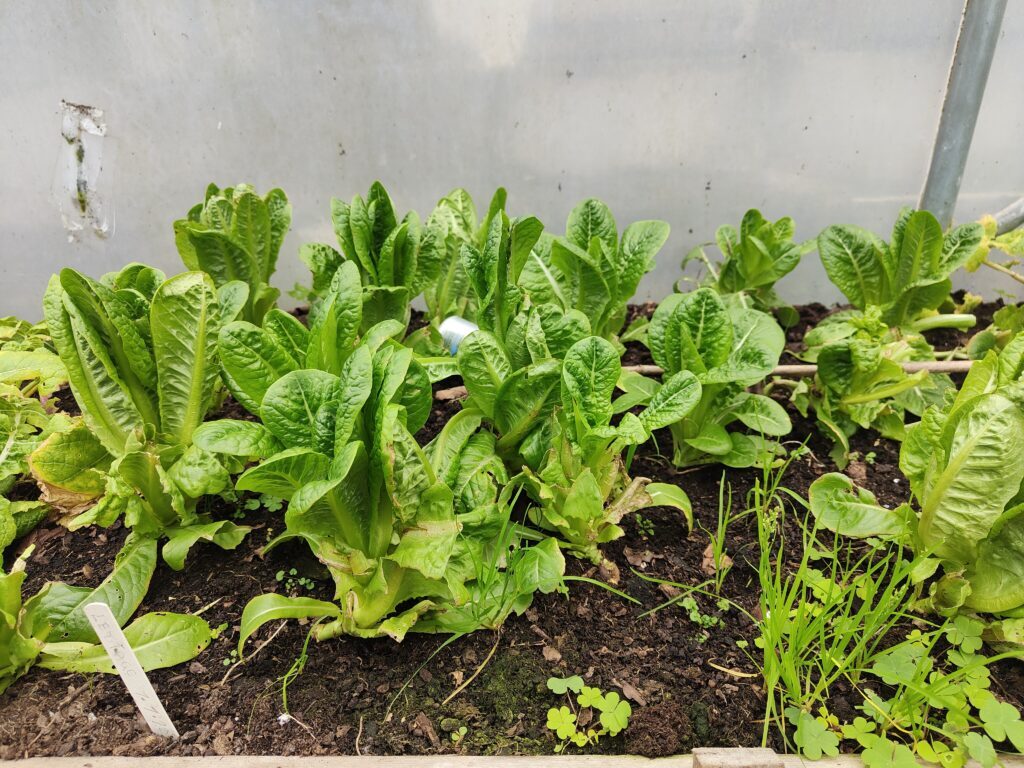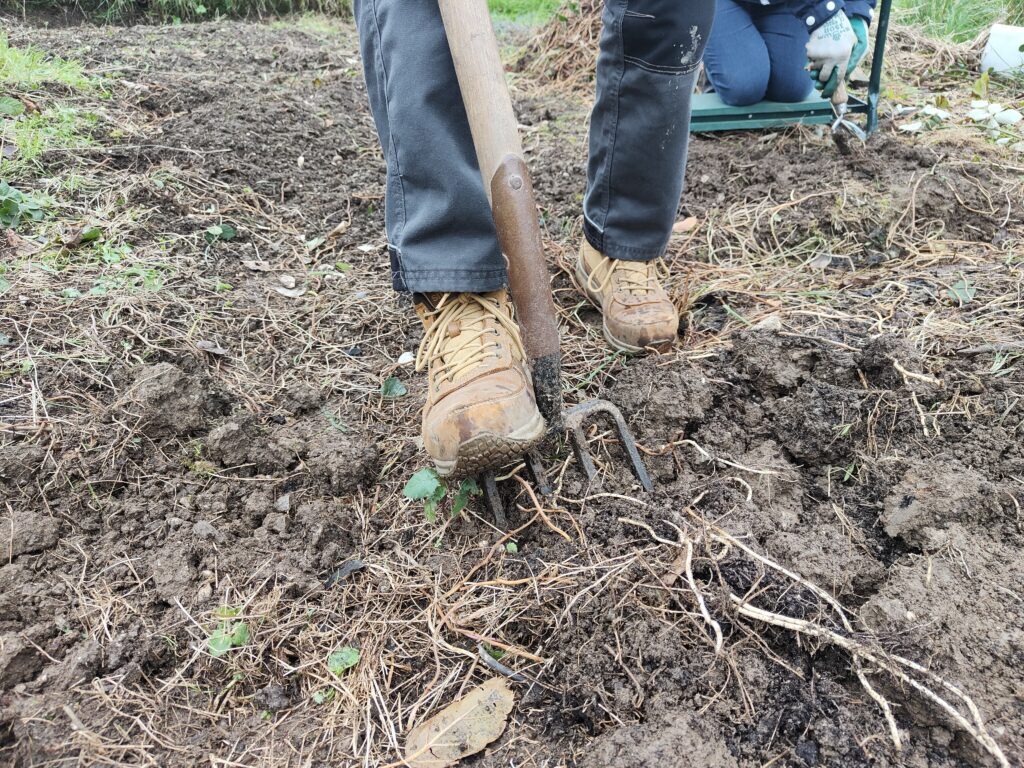
Words by Smiley Team
By Tom Barwell-Best
A cold December morning wasn’t enough to deter the Cornwall Mind Ecotherapy group from enjoying their allotment, nature, and each other's company.
Just past the Swanpool nature reserve, you’ll find a merry band making the most of the great outdoors every Tuesday morning and Thursday afternoon.
Anthony (Tony) McGarr first set up the initiative in 2016, whilst working for Cornwall Mind. As a plot owner himself at the site, he approached the CEO of Cornwall Mind with the idea of ecotherapy sessions for their service users, who also happened to be considering something similar. With a bit of paperwork, The Cornwall Mind Allotment Project was born.

From the main gate, you can see their polytunnel, art shed, and meeting space which, Tony says is deliberately in eyesight to promote their goal of removing the stigmas associated with mental health.
People can be referred by Pentreath, Cornwall Mind, or even self-refer. Once successful, they begin a six-month programme, before being referred onwards in their journey for improved mental health. Many apply to become a volunteer if they wish, enabling them to continue reaping the benefits of the ecotherapy sessions and aid the recovery of others.
The groups conduct a personal check-in at the start of each session, and have a confidentiality agreement in place to ensure everyone can feel free to share, without worrying about anything personal leaving the site.
“People experiencing mental illness may be afraid on a daily basis to tell someone, a classmate or someone at work that they do suffer,” said one of the attendees. “This is why a group like this with its confidentiality and openness, I can see it working for a lot of people, myself included”.
Year-round produce makes for great harvests for all, enjoying a healthy harvest of large Spanish beetroots just the week before. Other produce ranges from elephant garlic, onions, chard, spinach, French beans, radishes, lettuce, tomatoes, raspberries, potatoes, blackberries, blackcurrants to name just a few. Excess food goes to a local café who, in exchange, provide a donation every six months.

Gardening is not obligatory for attendees, and the group is free to make full use of drawing pads, acrylics, oils, watercolours, charcoal, and crayons kept in the cozy art shed, which hosts a growing exhibition of pieces.
Everyone attending the group expressed huge gratitude for the project, listing a range of benefits: being close to nature, learning, supporting others, discussion, developing listening skills, a sense of community and much more.
If you’re interested, they’re looking for volunteers. If you live in the Falmouth area, you can apply through Cornwall Mind. Or, if you live in another part of the country and have an allotment, why not look into setting up something similar?
This article aligns with the UN SDG Good Health and Wellbeing.